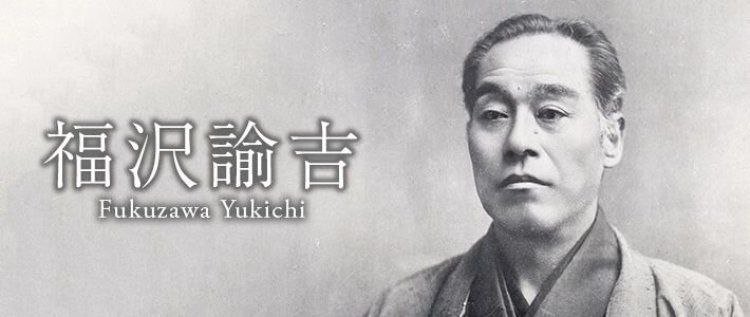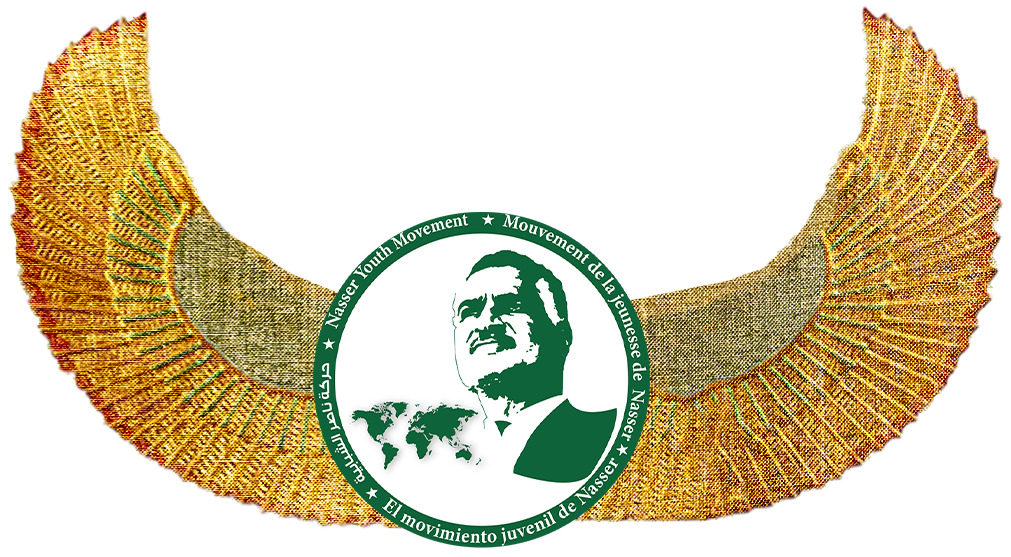Interpreter Fukuzawa Yukichi... Co-founder of the Renaissance of Modern Japan

Reviewed by: Wafaa El-houseiny
Translated by: Abdulrhman Abdulnaeem Omar
Interpreter Fukuzawa Yukichi... Co-founder of the Renaissance of Modern Japan
“It is said that the sky does not create people above other people, nor does it create people beneath others.”
Born in Osaka, Nakatsu Prefecture, Buzyn State, in 1835, Fukuzayukichi was the second son of a Samurai family, who worked in a warehouse for agricultural crops. Fukuzawa received a Confucian education during his childhood in Nakatsu Prefecture. In 1854, he completed the basics of Western science studies in addition to mastering the Dutch language in the city of Nagasaki, located on the southwestern coast of the Japanese island of Kyushu, which was under the control of Dutch colonialism at the time, and in 1855, Yukitichi returned to his hometown of Osaka, to join the Western Science School, which was then headed by the doctor and teacher Ogata Kuan, a doctor of Western medicine.
In 1855, Yokitichi moved to Edo (now Tokyo) and became a teacher at the Western Science School (later Keio Gijoku) of Nakatsu Prefecture. Japan had opened three ports for American and European ships on Tokyo Bay, so Yukichi went to Kanagawa to meet foreigners, but he was shocked to discover that European traders spoke English, not Dutch. Fukuzawa was determined to learn English despite the paucity of dictionaries and the scarcity of Japanese English translators at the time.
When Shogun, the military ruler of Japan, decided to send an envoy to the United States, Fukuzawa volunteered to serve as the envoy aboard the battleship Kanrinmaru, which was owned by the Edo government. When the expedition arrived in San Francisco in 1860, it stayed there for a month, during which Yukichi managed to obtain Webster's Lexicon and began to study English seriously. After returning to Japan, he changed his position to become a translator in the foreign translation service. Soon after, he directed his first books for printing; the Japanese-English dictionary under the title"Kai Tsugu" was translated from a Chinese-English dictionary.
In 1862, Yukichi visited some Western countries such as Britain, France, the Netherlands, Germany and Russia. He talked about them in his memoirs, saying: “Through my observations in both Western and Eastern civilization, I find each civilization has strengths and weaknesses, listed together in its moral teachings, and its scientific theory, but when I compare Western and Eastern civilizations, in a general way, in terms of wealth and power and providing the greatest happiness to the greatest number of people, I have to put the East at the lowest level of the West.”
During his visit to Europe, Yukichi was not attracted to information about science, engineering, and electricity... He expressed that saying: So my main interest in Europe was in things that were immediately more interesting. For example, when I watched a hospital, I wanted to know how it was run and who paid for current expenses. When I visited a bank, I wanted to know how the money was deposited and how it was paid; through a similar direct inquiry, I gained some knowledge of the postal system and recruitment that was then in force in France. ”
Yukichi recognized the inextricable relationship between the nature of a political /administrative system based on authoritarianism and the prohibition of women's education. In all his writings, he stressed the need to liberate the Japanese individual from restrictions that, in his view, limited the possibility of development and civilization; a realization that grew and grew after reviewing the philosophical, social, and organizational experiences of the West.
He founded “Jiji Shinpo” and other Japanese newspapers, the first Japanese to call for educational, scientific, and knowledgeable reform, addressing the government by structuring social institutions, and his ideas about governance and politics had a great impact on Japan's development and progress.
Fukuzawa Yukichi is the founder of Keio University, the first and oldest Japanese university, and one of the most prestigious universities in Japan, founded by Fukuzawa Yukichi as a foreign studies school in Edo in 1858. During its opening, he said in his famous speech: " I consider studying to be a practical art. Once you are out, keep what you have learned in your mind, and do your work in society. Indulge in crowds of people and mix with them, it will change their ideas and you will have the opportunity to expand education. ”
Fukuzawa faced many difficulties due to traditions that restricted the possibilities and opportunities of educating women; he even had to educate his daughters at home by private teachers, when the demand for a private girls' school receded.
In 1866, he published his book "The Situation of the West" in which he explained the political and economic structure of each of those countries based on the knowledge he obtained there. He traveled to the United States again in 1876, visiting Washington, D.C., and New York City.
Fukuzawa sought to publish the six conditions of civilization policy listed at the beginning of the first part of his book “The Situation of the West” in Japan and Asian countries. Those conditions are:
- Respect for individual freedom and non-restriction of citizens by law.
- Reserve the religious freedom
- Support the development of science and technology.
- Enhance school education
- Develop the industry through a stable policy based on appropriate laws.
- Always work to improve the well-being of citizens.
Fukuzawa Yukichi died of a stroke on February 3, 1901, at the age of 66. In his memory, Japan put his picture on the 10,000 Yen category.

